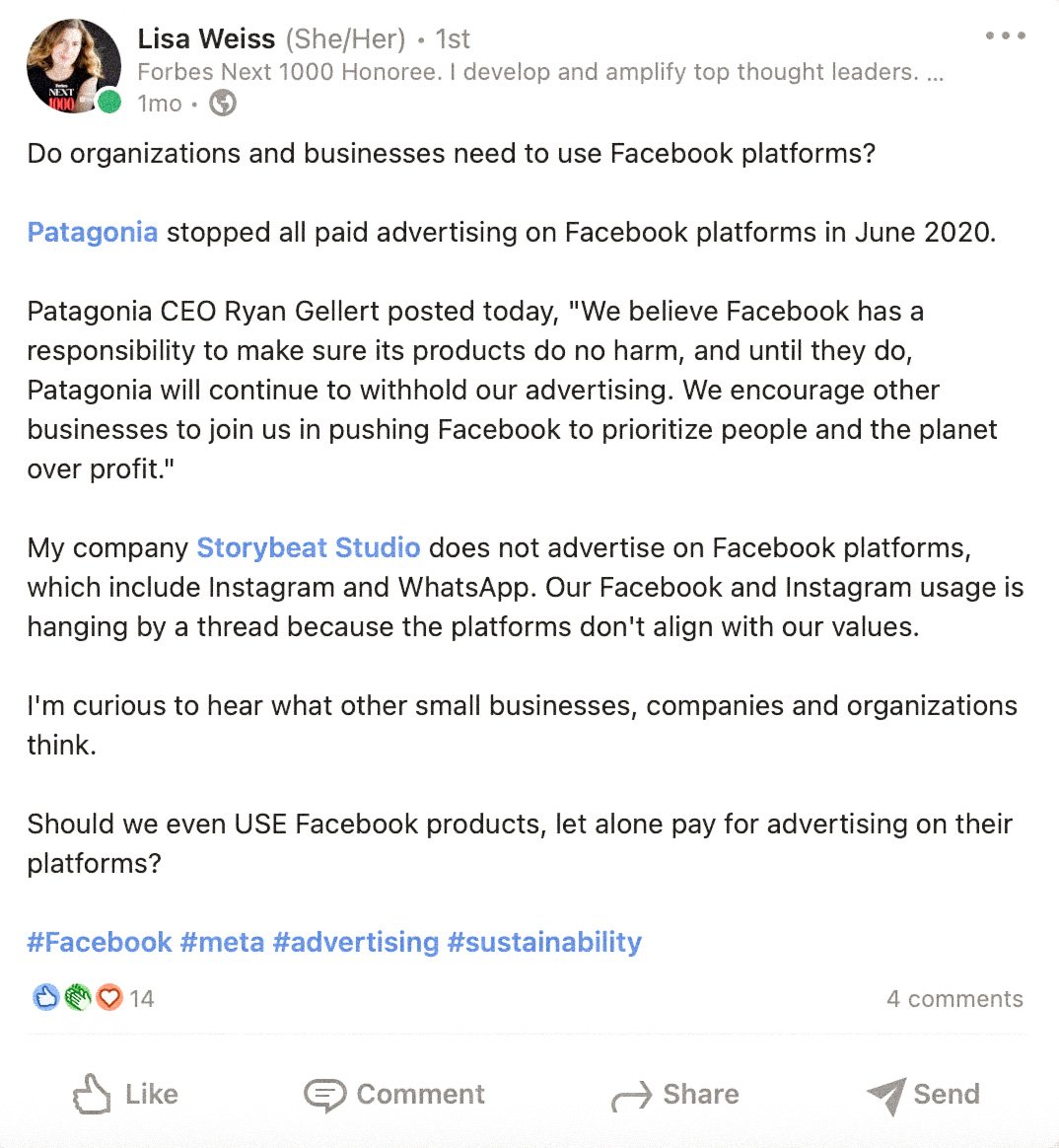Should your brand boycott social media?
As a digital strategy agency, we’re no strangers to the power of social media marketing to launch, sustain, and grow brands. In fact, an estimated $40 billion was spent on social media advertising in 2021 and experts project $49 billion in 2022.
Social media is like a party that everyone is invited to attend. Like anything, you can pay extra for VIP service (and the clout that comes with it). Some have used this to social climb their way to online success (#goals).
In fact, one poll of marketers found that not only do 79% report buying paid advertising on Facebook but more than 50% plan to increase their spending on Facebook, YouTube, and TikTok in 2022. You read that correctly: paid digital strategy is half the plan. For most brands that is.
Other brands have RSVP’d “no, thank you.”
No, we’re not talking about the brands who are stuck in the dark ages of the internet and just now joined Facebook and started a Twitter handle. We’re talking about the recent trend of companies and brands boycotting certain platforms that don’t align with their values.
Lisa Weiss, CEO of Storybeat Studio, posed this very question on LinkedIn. She also shared that her company did not advertise on Meta-owned platforms (Facebook, WhatsApp, Instagram, etc.) because they do not align with their brand values. And they aren’t the only ones.
Lisa is referring to Patagonia’s 2020 decision to join the likes of REI and The North Face in announcing their advertising pause on Meta-owned (then Facebook) platforms as part of #StopHateForProfit. A year and half later, Patagonia has continued their boycott and recently publicly condemned the company “because they spread hate speech and misinformation about climate change and our democracy.”
Lush cosmetics announced that it would be stepping away from social media altogether. The move was a response to whistleblower Francis Hagen’s revelations about the effects of social media on mental health. CEO Mark Constantine said he was 'happy to lose' $13 million and even likens disappointing response to the inaction around climate change (and we all know how that’s going): “In the same way that evidence against climate change was ignored and belittled for decades, concerns about the serious effects of social media are going largely ignored now.”
WHY NOW?
People have become more activist-minded and therefore are demanding the same from brands. However, this evolution comes with increased responsibility. While marketers have been well versed in the importance of the A-word (authenticity) for years, it wasn’t until recently that companies have been challenged to not just practice what they preach but prove it.
Patagonia is a brand with a storied activist history, therefore their radical stance is aligned with their brand values and customer's expectations. Consistency is essential and brands built upon values-based lifestyles must carry these values through their entire organization.
Similarly, as a brand that’s popular among Gen Z girls, this is an issue directly affecting Lush’s customer base. While it makes sense that they would take a stance on this issue, it’s also risky for the very same reason. Social media is a valuable tool for reaching customers, especially Gen Z girls, but an established and beloved brand like Lush can find alternative methods (especially if they prioritize their owned platforms!)
WHAT DOES IT MEAN FOR YOUR BRAND?
Taking such a strong stance is not necessarily the right move for every brand. Both of the examples above—Patagonia and Lush—are established global brands with brick and mortar locations; boycotting ads and social media is (as Lush’s Constantine alluded to) a luxury they can afford. For the large number of small businesses that rely on social media platforms to easily and cost effectively reach new customers, quitting altogether could be devastating. As we’ve covered in the past, these platforms’ outages have significant financial impacts not just for the platforms but those who advertise on them.
So while a few large brands rethinking their use of social media does not signal a full blown revolution, it is proof of a new activist and Gen Z-led normal of brands holding their peers accountable. Realistically, walking away from your entire social media strategy is not feasible for everyone. However, the takeaway here is that purpose-driven brands need to strive to weave their intended impact throughout everything they do.
Are we suggesting you quit Instagram? Absolutely not (yet). But, we do urge you to ask yourself: What does your brand stand for? Are you utilizing or working with a platform or brand that is counter to your brand’s values? Can you quit it? They might not be easy questions to answer, but as long as you’re keeping your brand’s values at the forefront, you can’t go wrong.
Sources:


